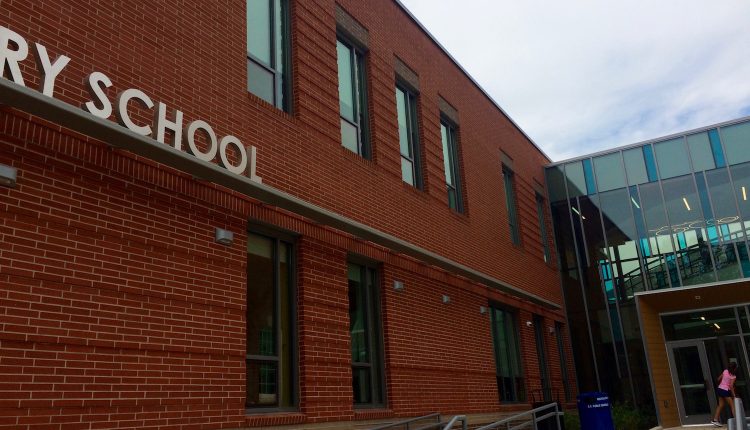Jessica Sutter: Recommendations for revised STAR Framework miss the mark in measuring true performance
For more than two years, the DC State Board of Education (SBOE) has been discussing changes to the School Transparency and Reporting (STAR) Framework, which serves as the state accountability system for all DC schools. Across two different iterations of the board, members have agreed that the current system presents serious issues in terms of how schools are assessed on their annual performance.
Over the last few decades, the prevailing narrative on “school quality” has been based on the types of students a school serves and their academic proficiency level. SBOE members broadly agree that this must stop. Our board has had multiple committees on the subject — I have served on them all — and dedicated hours of meetings, extensive stakeholder engagement, board-level discussions and resolutions to this issue.
Here’s the terrible truth: We have little to show for it.

In advance of the last SBOE public meeting of the year, the board’s Assessment and Accountability Committee has released a set of recommendations. We expect to hear significant public comment about these on Wednesday night. These recommendations will be discussed at our January working session, voted upon at our January public meeting, and shared with the Office of the State Superintendent of Education (OSSE) in an effort to guide their work over the next year.
But nothing will actually change.
I believe my fellow board members would concur that a school’s true performance is only as strong as the performance of its students furthest from opportunity.
Our recommendations would not bring about assessments that measure those qualities.
Rather than pushing for bold ideas to reinvent the way the District assesses school performance, our recommendations are about optics, not substance. Our board has been limited by our lack of collective willingness to step back, define our common purpose, and conceptualize recommendations for a system grounded in equity.
Right now, OSSE uses a formula to evaluate the annual performance of all public schools — including a determination as to the bottom 5% statewide, as required under federal law — and shares that information with the public using the STAR Framework. Schools are issued one to five stars based on how they rank under the formula.
One contentious recommendation the board will consider is removal of the summative STAR rating from the tool we use to publicly share information about annual school performance. Our board has been counseled by education experts and advocates that keeping the rating is racist. It is biased, they say. It will exacerbate school segregation. It oversimplifies the complexity of the many elements that make up a quality school. Removing it must be the top priority.
In lieu of the current STAR rating formula, the committee recommends using a slightly altered formula to annually identify the lowest-performing 5% of schools, but not to transparently share how any of the other 95% of schools perform. If your child’s school is the worst-performing school in the District, we’ll share that — but not if your school is the best, or anywhere at all in the middle. Instead, if we adopt the committee’s proposal, we will recommend suppressing that information in the name of equity without any suggestions on how to more equitably assess the way schools are serving all students.
Experts and advocates have also repeatedly testified to the SBOE that we should design all of our educational systems — from finance to instruction to accountability — to prioritize students historically furthest from the opportunities they deserve.
Our current STAR Framework lacks this kind of equity-driven design. Several advocates suggested redesigning our accountability system with a front-loaded focus on students designated at-risk, students with disabilities, English language learners, and Black and brown students. They offered specific design suggestions, such as increasing the weight given to the academic growth of these students; an alternative suggestion envisions a metric for the academic growth of students who persist at a school for three years or more. Both types of adjustments would more clearly measure which schools are effectively serving groups of students DC has historically failed to serve well.
Do our recommendations include any of these ideas? They do not.
Instead, we defer the definition of an “equitable growth” measure and the determination of metric weights to OSSE — the very agency that was in charge of creating the system to which we’re recommending changes.
We have all been living through extraordinarily challenging times, which have dramatically affected our schools and students. Early evidence suggests the pandemic has had profound impacts on student academic and social-emotional well-being. We must evaluate this reality in all of our DC schools and show our families in the clearest and most transparent way possible the overall performance of their schools. We must also highlight the bright spots and areas of concern in each school’s data to support ongoing improvement and learning from best practices.
Because our recommendations arrive after two years in which DC students have had significantly interrupted learning and no statewide assessments, we lack any consistent academic assessment data to include in the state accountability system — with or without revisions. The earliest implementation date is 2024 for any system to calculate academic growth at a statewide level. Our recommendations encourage use of school climate measures, which communicate how students, teachers and families feel about their experience in school. These might include data on school discipline, student safety or a common statewide survey of students. We have no such statewide tool and will need time — at least two years — to develop, adopt, test and validate any such measure.
Given that we have time before we can fully implement any statewide accountability system, I wonder why my colleagues are content with recommendations that, at best, tinker around the edges of our current system.
Most of the committee recommendations are about how to best display data and information in the public reporting tool. These recommendations are fine. I think, in general, they will do no harm.
But will they do real good? No. Have we been courageous enough? Not even close. Is there more we could do to push for real equity in our accountability system? Absolutely! And I think we owe the District more than putting forward a plan that will fail to change the inequities we have identified in the current system.
If we do not, what is the point?
Jessica Sutter represents Ward 6 on the DC State Board of Education.
About commentaries
The DC Line welcomes commentaries representing various viewpoints on local issues of concern, but the opinions expressed do not represent those of The DC Line. Submissions of up to 850 words may be sent to editor Chris Kain at chriskain@thedcline.org.



Comments are closed.